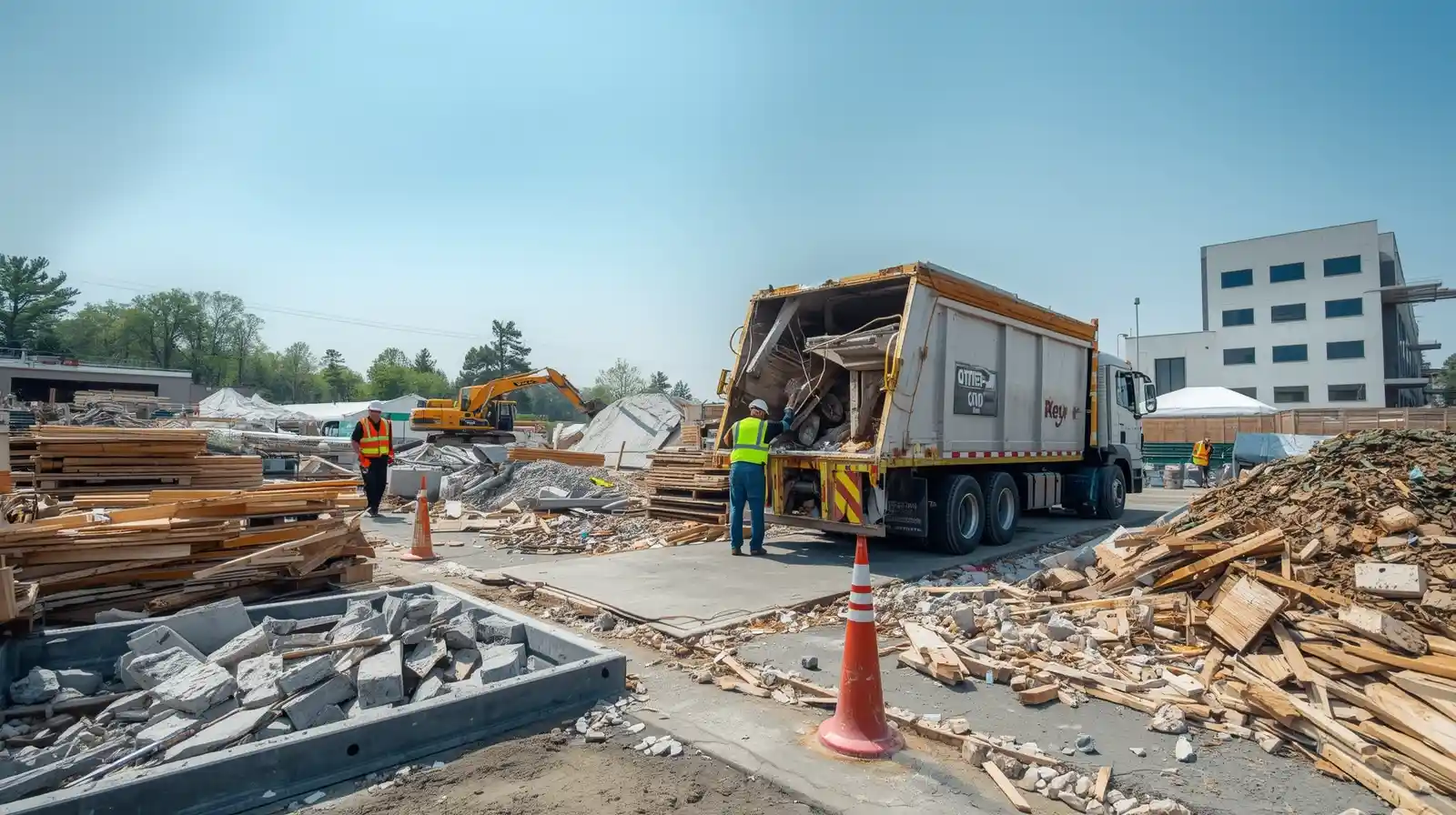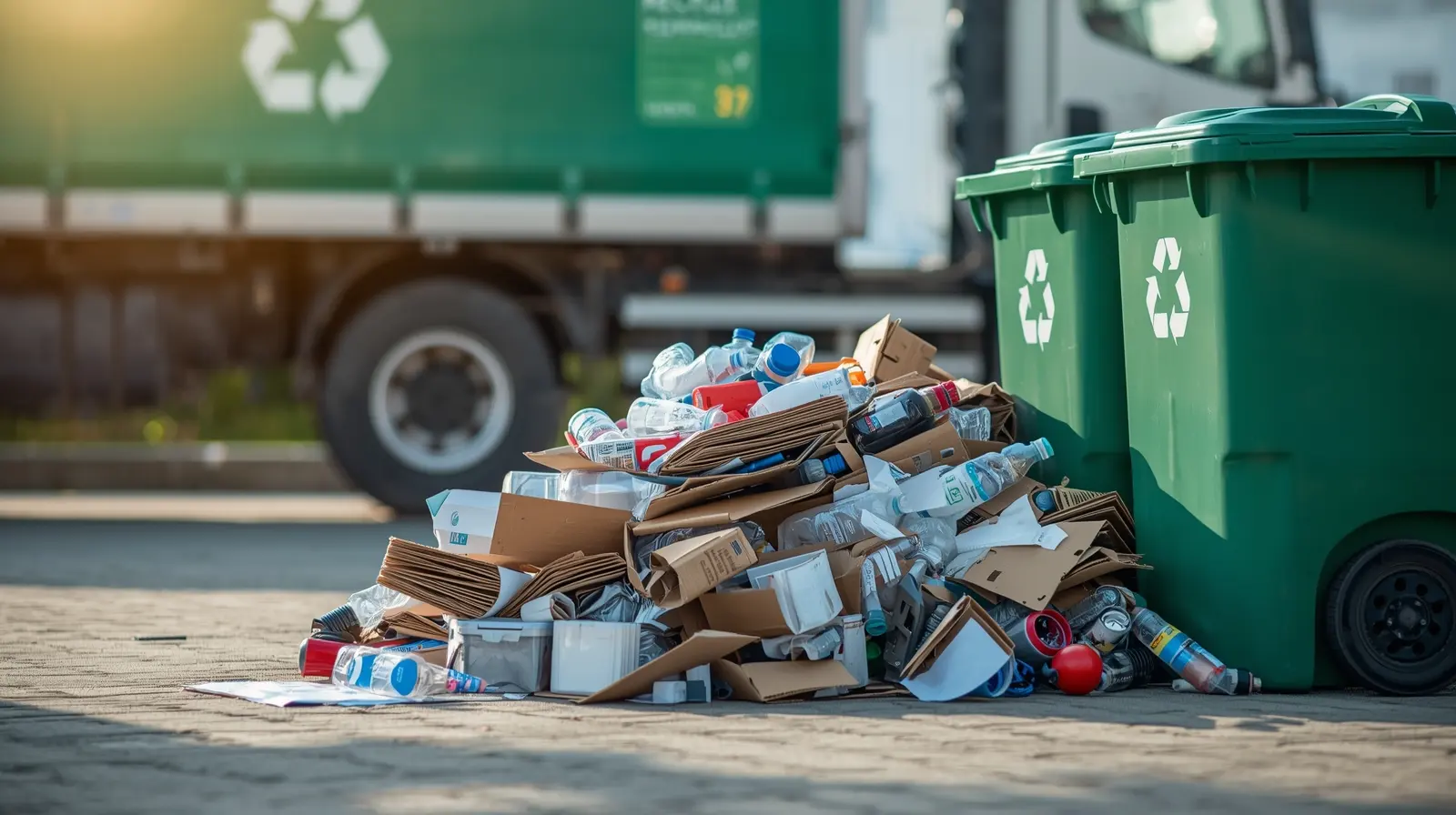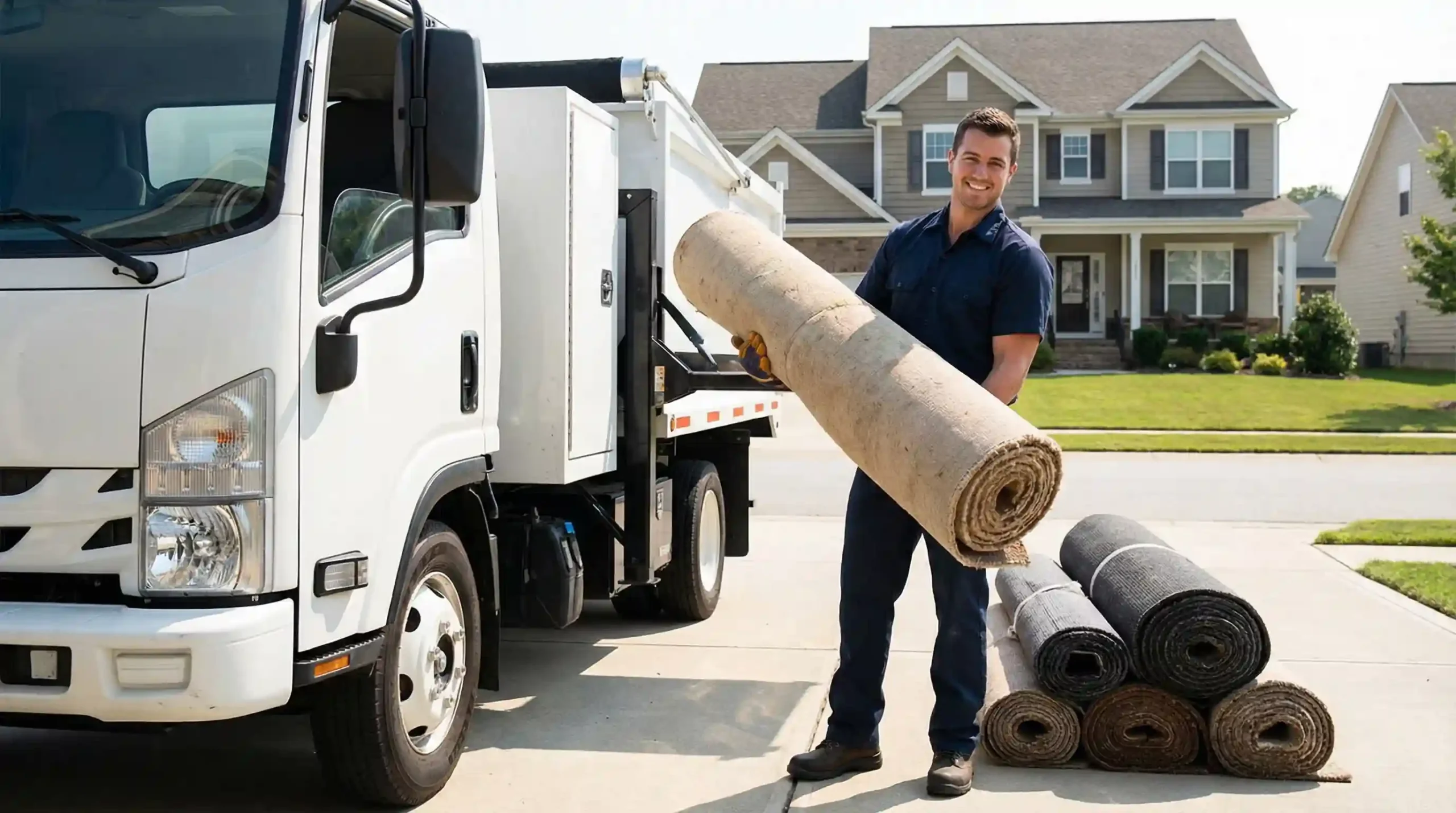After any home renovation, construction project, or major cleanup, piles of leftover debris can feel overwhelming. Whether it’s concrete, drywall, or old wood, figuring out the right way to dispose of it matters, and so does the cost.
If you’ve ever wondered about debris removal cost, this guide explains everything you need to know. You’ll learn what affects pricing, how estimates are calculated, what types of debris removal services exist, and how professional companies like Thejunkthief make cleanup faster, safer, and more affordable.
Why Debris Removal Matters After Construction or Renovation

Every renovation, demolition, or building project leaves behind a mess of concrete chunks, wood scraps, nails, shingles, or even dirt. Ignoring this waste isn’t just inconvenient; it can also create safety risks and violate local disposal rules. Proper debris removal keeps your property clean, prevents injury, and protects the environment. Professional cleanup also ensures materials like metal, drywall, or concrete are taken to the right recycling or disposal sites.
Doing it yourself might sound cheaper, but it often requires multiple trips, truck rentals, and landfill fees all of which add up quickly. That’s why many homeowners and contractors turn to trained crews who handle everything efficiently.
The Growing Need for Professional Debris Removal Services
More homeowners and builders are realizing the value of hiring professionals for cleanup. The construction and remodeling industry continues to grow, which means more waste to manage safely. Professional construction debris removal services do more than just haul trash. They sort materials, separate recyclables, and dispose of hazardous waste correctly. These services save time, reduce liability, and make your job site or home look organized again.
Contractors also prefer working with certified construction debris removal companies because they’re reliable, insured, and understand local laws about dumping and recycling. Having experts handle debris saves you from heavy lifting, fines, and unnecessary stress.
What Is the Average Debris Removal Cost?
The average debris removal cost depends on several key factors, but most homeowners can expect to pay anywhere from $200 to $800 per load, depending on debris volume and materials.
For larger construction projects, costs may range between $500 and $2,000 or more. If you only have a small pile of yard waste or remodeling scraps, the price might fall on the lower end.
Typically, companies charge based on:
- Cubic yards (volume of debris)
- Truckload capacity (half or full load)
- Weight (for heavy items like concrete or bricks)
So when you ask, “What does debris removal really cost?” the answer depends on what you’re throwing away and how much of it there is.
Key Factors That Affect the Cost of Debris Removal

Understanding what goes into pricing helps you plan and avoid surprises. Here are the main factors that influence cost of debris removal:
1. Type of Debris
Concrete, roofing materials, and metal are heavier and cost more to remove than general household junk.
2. Volume or Weight
The more waste you have, the higher the total cost. Crews measure debris in cubic yards or by truck capacity.
3. Accessibility
If debris is in a basement or a hard-to-reach backyard, labor costs increase. Easy driveway access lowers your total bill.
4. Disposal and Recycling Fees
Local dump or recycling centers charge per ton. Companies include this in your quote.
5. Labor and Equipment
Projects needing heavy machinery or multiple workers, such as construction debris clean-up, will cost more.
6. Regional Pricing
Rates vary by location. Densely populated areas often have higher fuel and landfill costs.
In short, debris removal is priced by effort, equipment, and material type, not just the size of the pile.
Construction Debris Removal Cost Breakdown
When it comes to construction debris removal cost, expect to pay more than for regular household junk. The materials are heavier, and some may need special handling.
Average Cost Range
- Small renovation debris (drywall, wood, insulation): $250–$600
- Medium construction project (bathroom or kitchen remodel): $600–$1,200
- Full demolition debris (brick, concrete, roofing): $1,000–$2,500+
Services Included
- On-site pickup and hauling
- Sorting of materials (wood, metal, concrete)
- Proper disposal at approved facilities
Professional construction debris hauling services often use larger trucks to handle mixed materials efficiently. If you’re doing a home remodel, remodeling trash removal services can include partial demolition cleanup, drywall removal, and floor debris hauling.
Some companies even offer construction debris removal prices based on “per cubic yard,” which helps customers better understand how space equals cost.
Comparing Junk and Debris Removal Prices

It’s easy to confuse debris removal with junk removal, but they’re not the same.
- Junk removal covers household clutter, furniture, mattresses, or appliances.
- Debris removal focuses on construction or remodeling waste, heavier materials that need different disposal methods.
The average cost of junk removal usually ranges from $150 to $600, depending on the load. Meanwhile, construction debris removal can be two or three times that because of the extra weight and recycling requirements.
If you’ve ever searched for how much junk removal costs or a junk removal price estimate, keep in mind that those prices don’t apply to heavy materials like concrete, tile, or asphalt. For those, you’ll need professional construction Junk removal services that are equipped to handle it safely.
How to Calculate Debris Removal Costs Accurately
Knowing how to calculate debris removal costs helps homeowners set realistic budgets.
Here’s a quick method professionals use:
- Measure the Debris Volume: Estimate how many cubic yards your waste pile covers.
- Identify the Material Type: Heavier items like bricks, metal, or wood will increase the quote.
- Check for Recycling Options: Recyclable materials may lower your disposal cost.
- Add Labor and Travel Fees: Companies may include these if your site is far from a landfill.
If you’re comparing quotes, ask for a breakdown that lists volume, disposal fees, and labor separately. This transparency ensures you’re paying only for what’s necessary.
A cost to remove construction debris estimate can vary widely, but calculating by volume and weight gives the most accurate picture.
Choosing the Right Construction Debris Removal Company
Hiring the right company makes all the difference between a smooth cleanup and a stressful one. Look for these key qualities when choosing a construction debris removal company or debris removal experts:
- Experience: Choose professionals who have handled similar projects before.
- Licensing and Insurance: Always verify credentials to protect your property.
- Transparent Pricing: Get clear quotes, no hidden landfill or fuel fees.
- Recycling Commitment: The best companies recycle or repurpose materials responsibly.
- Reliable Scheduling: Timely pickups prevent project delays.
Working with local, trusted professionals ensures proper disposal and full compliance with regional waste laws.
Cheapest Ways to Get Rid of Construction Debris Without Sacrificing Quality

If you’re on a tight budget, there are still affordable ways to remove waste safely:
- Rent a Dumpster: If you have a multi-day project, renting a small dumpster might be cheaper than multiple pickups.
- Sort Materials Yourself: Separate recyclables like metal and wood to reduce weight-based costs.
- Schedule One Large Pickup: It’s usually cheaper than several small ones.
- Recycle and Donate: Leftover tiles, fixtures, or lumber can be reused.
- Compare Multiple Quotes: Get estimates from a few construction debris removal services to find fair rates.
While these steps save money, remember that professional help prevents accidents and saves time. A few extra dollars spent on trained help can protect you from injury or property damage.
Professional Debris Removal Services in Northern Virginia by Thejunkthief
In Northern Virginia, property owners face specific challenges like limited landfill access, strict dumping rules, and varying disposal fees. That’s where Thejunkthief comes in.
This local team specializes in fast, reliable construction debris removal for residential and commercial projects. They handle everything from hauling off construction debris to construction debris clean up using proper trucks, safety gear, and eco-friendly disposal practices.
Their experience means you get accurate estimates, safe handling, and complete transparency. Whether you’re cleaning up after a home remodel or a large commercial build, their professional crew ensures your space is spotless and compliant with all local regulations.
Final Thoughts: Planning Your Cleanup and Budget Wisely
Understanding debris removal cost is the first step to planning any cleanup project effectively. Prices depend on material type, debris volume, labor, and disposal fees, but working with trusted experts ensures value, safety, and peace of mind.
Rather than guessing, get a clear estimate from professionals who understand the entire process. Reliable companies handle the heavy lifting, paperwork, and recycling so you can focus on your project, not the mess.
If you want efficiency, safety, and fair pricing, hiring a professional team is always worth it.
Ready to clear your construction site or renovation space? Contact Thejunkthief today for a free debris removal estimate and fast, professional cleanup service you can count on.






